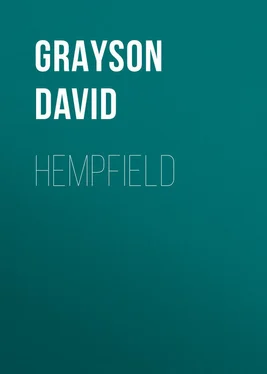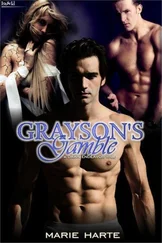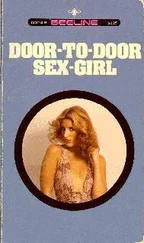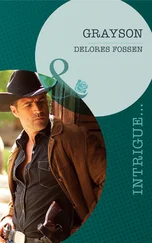David Grayson - Hempfield
Здесь есть возможность читать онлайн «David Grayson - Hempfield» — ознакомительный отрывок электронной книги совершенно бесплатно, а после прочтения отрывка купить полную версию. В некоторых случаях можно слушать аудио, скачать через торрент в формате fb2 и присутствует краткое содержание. Жанр: foreign_antique, foreign_prose, Историческая проза, на английском языке. Описание произведения, (предисловие) а так же отзывы посетителей доступны на портале библиотеки ЛибКат.
- Название:Hempfield
- Автор:
- Жанр:
- Год:неизвестен
- ISBN:нет данных
- Рейтинг книги:3 / 5. Голосов: 1
-
Избранное:Добавить в избранное
- Отзывы:
-
Ваша оценка:
- 60
- 1
- 2
- 3
- 4
- 5
Hempfield: краткое содержание, описание и аннотация
Предлагаем к чтению аннотацию, описание, краткое содержание или предисловие (зависит от того, что написал сам автор книги «Hempfield»). Если вы не нашли необходимую информацию о книге — напишите в комментариях, мы постараемся отыскать её.
Hempfield — читать онлайн ознакомительный отрывок
Ниже представлен текст книги, разбитый по страницам. Система сохранения места последней прочитанной страницы, позволяет с удобством читать онлайн бесплатно книгу «Hempfield», без необходимости каждый раз заново искать на чём Вы остановились. Поставьте закладку, и сможете в любой момент перейти на страницу, на которой закончили чтение.
Интервал:
Закладка:
Well, Ed was wonderfully full of business. "Rustling" was a favourite word of his, and he exemplified it. He rustled. He got in several new advertisements, he published paid reading notices in the local column, a thing never before done on the Star . He persuaded the railroad company to print its time tables (at "our regular rates"), with the insinuation that if they didn't he'd … and he formed a daring plan for organizing a Board of Trade in Hempfield to boost the town and thus secure both news and advertising for the Star . Oh, he made things lively!
Some men, looking out upon life, get its poetic implications, others see its moral significance, and here and there a man will see beauty in everything; but to Ed all views of life dissolved, like a moving picture, into dollars.
At first Fergus, that thrifty Scotch soul, was inclined to look with favour upon these new activities, for they promised well for the future prosperity of the Star ; but this friendly tolerance was blasted as the result of a curious incident. Fergus had lived for several years in the back part of the printing-office. It was a small but comfortable room which had once been the kitchen of the house. In the course of his ravening excursions, seeking what he might devour, Ed Smith presently fell upon Fergus's room. Ed never could understand the enduring solidity of ancient institutions. Now Fergus's room, I am prone to admit, was not all that might have been desired, Fergus being a bachelor; but he was proud of it, and swept it out once a month, as he said, whether it needed it or not. Ed's innocent suggestion, therefore, of a house-cleaning was taken by Fergus as a deadly affront. He did not complain to Anthy, though he told me , and from that moment he began a silent, obstinate opposition to everything that Ed was, or thought, or did.
If it had not been for Anthy, Ed would indeed have had a hard time of it. But Anthy managed it, and in those days, hard as they were, she was finding herself, becoming a woman.
"Fergus," she said, "we're going to stand behind Ed Smith. We've got to work it out. It's our last chance, Fergus."
So Fergus stuck grimly to the cases, actually doing more work than he had done before in years; Tom, the cat, sat warily on the window sill, ready at a moment's notice to dive to safety; the old Captain was gloomy, and wrote fierce editorials on the Democratic party and on all "new-fangled notions" (especially flying machines and woman suffrage). His ironies about the "initiative, referendum, and recall" were particularly vitriolic during this period of his career. Anthy was the only cheerful person in the office.
It was some time in August, in the midst of these stirring events, when the Star was deporting itself in such an unprecedented manner, that the Captain one day brought in what was destined to be one of the most famous news items, if not the most famous, ever published in the Star .
I was there at the time, and I can testify that he came in quite unconcernedly, though there was an evident look of disapproval upon his countenance. It was thus with the Captain, that nothing was news unless it stirred him to an opinion. An earthquake might have shaken down the Hempfield townhall or tipped over the Congregational Church, but the Captain might not have thought of putting the news in the paper unless it had occurred to him that the selectmen should have been on hand to prevent the earthquake, upon which he would have had a glorious article, not on the earthquake, but on the failure of a free American commonwealth, in this enlightened twentieth century, to secure efficiency in the conduct of the simplest of its public affairs.
But truly historic events get themselves reported even through the densest mediums. I saw the Captain with my own eyes as he wrote:
What has become of the officer of the law in Hempfield? A strange young man was seen coming down Main Street yesterday afternoon in a condition which made him a sad example for the lads of Hempfield, many of whom were following him. Is this an orderly and law-abiding town or is it not?
I may say in passing that the Captain's inquiry: "What has become of the officer of the law in Hempfield?" was purely rhetorical. The Captain knew perfectly well where Steve Lewis was at that critical moment, for he had looked over the fence of Steve's yard as he passed, and saw that officer of the law, in a large blue apron, helping his wife hang out the week's washing. But how could one put that in the Star ?
Such was the exact wording of that historic item. By some chance it did not meet the eagle eye of Ed Smith until the completely printed paper, still moist from the press, was placed in his hands. Then his eye fell upon it.
"Who wrote this item about a strange young man?" he asked.
"I think the Captain got it," said Anthy.
"Well!" exclaimed Ed, "that must be the very chap I have just hired to help Fergus."
He paused a moment, reflectively.
"I got him dirt cheap, too," said he.
And this was the way in which Norton Carr was plunged into the whirl of life at Hempfield.
CHAPTER V
NORT
I love Norton Carr very much, as he well knows, but if I am to tell a truthful story I may as well admit, first as last, that Nort was never quite sure how it was that he got off, or was put off, at Hempfield. In making this admission, however, I do not for a moment accept all the absurd stories which are afloat regarding Nort's arrival in Hempfield.
He says the first thing he remembers clearly was of standing in the street at the top of our common, looking down into Hempfield – one of the finest views in our town. The exact historic spot where he stood was nearly in front of a small shoe shop, the one now kept by Tony, the Italian. If ever the Georgia Johnson Chapter of the Daughters of the American Revolution runs out of places upon which to plant stones, tablets, trees, flowers, cannon balls, or drinking fountains, I would respectfully suggest raising a monument in front of Tony's shop with some such inscription as this:
Nort walked down the street with a number of boys behind him — three , to be exact, not a "rabble." He was seen by old Mrs. Parker, one of our most prominent journalists, who was, as usual, beating her doormat on the front porch. He was seen by Jared Sparks, who keeps the woodyard, and by Johnny McGonigal, who drives the hack; and finally he was caught by the eagle eye of the Press, in the person of Captain Doane, as I have already related, and his shame was published abroad to the world through the columns of the Star . As nearly as I can make out, for the facts regarding any given event in Hempfield often vary in adverse proportion to the square of the number of persons doing the reporting, the main indictment against Nort upon this occasion was that he appeared in town, a stranger without a hat. Without a hat!
I admit that he did stop in front of the Congregational Church; but I maintain that it is well worth any man's while to stop on a fine morning and look at our old church, with its mantle of ivy and the sparrows building their nests in the eaves. I admit also that he did make a bow, a low bow, to the spire, but I deny categorically Johnny McGonigal's absurd yarn that he said: "Good mornin', church. Shorry sheem disrespechtful." Any one who knows Nort as well as I do would not consider his making a bow to a perfectly respectable old church as anything remarkable, or accusing him of having been intoxicated, save with the wine of spring and of youth. Why, I myself have often bowed to fine old oak trees and to hilltops. I wonder why it is that when small communities jump at conclusions, they so often jump the wrong way?
Читать дальшеИнтервал:
Закладка:
Похожие книги на «Hempfield»
Представляем Вашему вниманию похожие книги на «Hempfield» списком для выбора. Мы отобрали схожую по названию и смыслу литературу в надежде предоставить читателям больше вариантов отыскать новые, интересные, ещё непрочитанные произведения.
Обсуждение, отзывы о книге «Hempfield» и просто собственные мнения читателей. Оставьте ваши комментарии, напишите, что Вы думаете о произведении, его смысле или главных героях. Укажите что конкретно понравилось, а что нет, и почему Вы так считаете.












